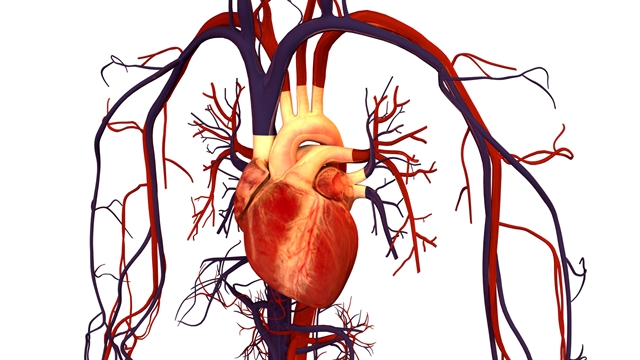
3 Aug. 2022. Tests with lab monkeys show a vaccine with a synthetic peptide lowers so-called bad cholesterol in blood for longer periods than a comparable monoclonal antibody. Biotechnology company Vaxxinity Inc., a developer of therapeutic vaccines based in Dallas, reported the findings on its web site, which are not yet peer-reviewed.
Vaxxinity creates treatments for chronic diseases that invoke an immune response, much like vaccines. While many immunotherapies are in development, the company says its approach using synthetic peptides is more economical and at least comparable in effectiveness to monoclonal antibodies, synthetic highly-targeted proteins also designed to invoke an immune response. Peptides are short chains of amino acids, which when linked together into longer chains, become proteins.
The company’s technology designs synthetic peptides to first activate CD4+ or helper T-cells in the immune system that respond to peptides. Those T-cells, says Vaxxinity, alert and provide an epitope, or binding-site target, for B-cells in the immune system to produce antibody proteins. In addition, says the company, the peptide links chemically to the binding-site target, providing a clear pattern for B-cells to produce antibodies. When needed says Vaxxinity, such as for infectious diseases, its synthetic peptides also provide an additional target to generate a memory T-cell response.
Addresses proteins regulating cholesterol levels in blood
Vaxxinity applies its technology to vaccines for neurodegenerative diseases, including Alzheimer’s and Parkinson’s disease, as well as SARS-Cov-2, migraine, and hypercholesterolemia, or excessive levels of low-density lipoprotein cholesterol. At high levels in the blood, low-density lipoprotein or LDL cholesterol, the so-called bad cholesterol, greatly increases the risk of heart disease and stroke. In some cases, hypercholesterolemia is an inherited condition that appears in childhood and becomes life-threatening in teenagers.
The company is developing an experimental vaccine therapy for hypercholesterolemia, code-named VXX-401, currently in preclinical development. The vaccine, says Vaxxinity, addresses proteins expressed by the proprotein convertase subtilisin/kexin type 9 or PCSK9 gene that regulate cholesterol levels in the blood. In July, Science & Enterprise reported on the start of a clinical trial testing a precise form of Crispr gene editing that also targets the PCSK9 gene as a one-time therapy for inherited hypercholesterolemia.
Vaxxinity reports that tests with lab monkeys show a six-week regimen of VXX-401 reduces LDL cholesterol levels 40 to 50 percent compared to a placebo. Also, says Vaxxinity, LDL cholesterol reductions for VXX-401 are similar to a single dose of a monoclonal antibody designed for LDL cholesterol. Moreover, monkeys given the single monoclonal antibody dose return to their baseline levels of LDL cholesterol within two to three weeks, while animals given VXX-401 continue their lower levels of LDL cholesterol for four months after their last dose. Levels of high-density lipoprotein or HDL cholesterol, the “good” cholesterol, are not affected in VXX-401 recipients. And, says the company, the treatments are well tolerated by the animals.
“Targeting PCSK9 is a proven and effective approach for lowering cholesterol and reducing the risk of heart attack and stroke,” says Ulo Palm, Vaxxinity’s chief medical officer in a company statement, “but today’s approved therapies have access and administration challenges that limit their use to a small subset of the full population who could benefit.” Company CEO Mei Mei Hu adds, “Achieving proof-of-concept in a well-validated target such as PCSK9 is another meaningful milestone for Vaxxinity and brings us one step closer to our vision of vaccinating the world against heart attack and stroke.”
More from Science & Enterprise:
- Precision Protein Design Start-Up Gains $40M in Early Funds
- GSK Acquires Advanced Vaccine Biotech in $3.3B Deal
- AI Drug Company Creating Covid-19 Therapy for Rapid Delivery
- Drug Discovery Biotech Inks Partnering Deal, Gains $175M
- Start-Up Designs RNA Drugs on Demand, Raises $40M
We designed Science & Enterprise for busy readers including investors, researchers, entrepreneurs, and students. Except for a narrow cookies and privacy strip for first-time visitors, we have no pop-ups blocking the entire page, nor distracting animated GIF graphics. If you want to subscribe for daily email alerts, you can do that here, or find the link in the upper left-hand corner of the desktop page. The site is free, with no paywall. But, of course, donations are gratefully accepted.
[wpedon id=”42724″ align=”center”]
* * *
